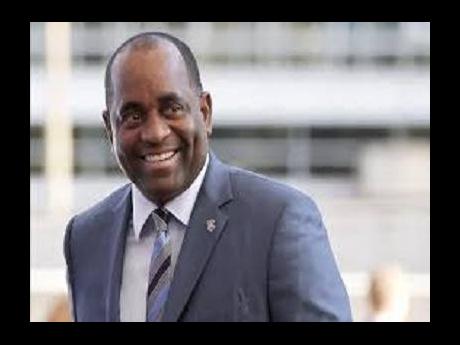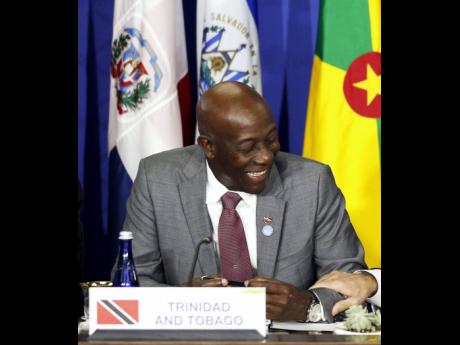‘People are searching for new political hope’ - Analysts say voter apathy is right across the Caribbean
Despite the landslide 49-14 victory secured by the Jamaica Labour Party (JLP) in this month’s general election, regional political scientists and observers warn of dwindling interest in the electoral process across the Caribbean.
Citing the record low 37 per cent voter turnout here as an example, the experts spoke of growing apathy among voters which lead to depressed numbers at the polls.
“If I were to look at electoral politics in CARICOM [Caribbean Community] over the last couple decades, there has been a fall away in terms of electoral support,” said Tony Fraser, a Trinidad-based freelance journalist who has covered regional politics, economics and other major issues for Caribbean and international media. “A party in office might be re-elected a couple times but continuously with lower margins.”
The record low turnout didn’t escape Jamaica’s Prime Minister Andrew Holness, who, though overjoyed at securing the largest margin of victory in decades, recognised that there was reason to be concerned.
“There is cause for celebration, but there is also significant cause for consideration,” Holness said after confirmation of the September 3 results. “There are many Jamaicans who did not participate, there are many Jamaicans who, for fear of the virus, did not come to the polls, and some for other reasons – apathy, frustrations – decided not to participate.”
THE COVID IMPACT
As the prime minister suggested, the ongoing coronavirus pandemic appears to be the primary cause of the low turnout in the recent general election, an observation also made by Peter Wickham, a Barbadian pollster, political scientist and former University of the West Indies lecturer. Wickham said every CARICOM state which held an election this year under the cloud of COVID-19 recorded a decline in voter participation.
In Suriname, where voters went to the polls on May 25, there was a one per cent fall in turnout. However, Anguilla (17 per cent), Jamaica (23 per cent), St Kitts and Nevis (19 per cent), and Trinidad and Tobago (30 per cent) all registered double-digit drops compared to their last election.
“You’re really seeing significant reductions in voter turnout as a result of the COVID impact,” said the regional pollster. “The reduction in voter turnout appears to have helped the incumbent more.”
However, signs that fewer electors have been willing to exercise their franchise have been evident even before the pandemic. In the 2016 general election, only 48.37 per cent of Jamaicans voted, according to the Electoral Commission of Jamaica. This was down from 53.26 per cent in 2011 and 61.46 per cent in 2007, a rise over the 59.37 per cent recorded in 2002.
In fact, with the exception of the first general parliamentary election under universal adult suffrage held in December 1944 when there was a 58.38 per cent turnout, the number of voters casting ballots had steadily increased, reaching 86.91 per cent in 1980. But the numbers have been slipping since 1989 – there was a 29.49 per cent turnout in 1983 due to the boycott by the People’s National Party.
The situation is similar in many Caribbean countries, which have either recorded small, yet steady, declines over the past five general elections or so, or have maintained turnout in the low to mid-50 per cent range.
“This reflects a population wanting something new,” Fraser told The Sunday Gleaner.
All three English-speaking CARICOM member countries that held elections since the onset of COVID-19 saw the incumbent retaining power. In two of the three cases – Jamaica and St Kitts and Nevis – the ruling party extended its majority. This has led some observers to question whether governing parties in the region are increasingly becoming entrenched. It’s a suggestion that has been dismissed by Wickham, who said that in all three cases, the incumbent was seeking a second term.
INTERESTING ANALYSIS
“The challenge is that in a situation where the incumbent was clearly stronger and expected to gain a second term, I don’t know that the conversation is about the likelihood that they would win but more the proportions of the win, and I think that that’s really where the interesting analysis is in the case of Jamaica – the fact that the reduction in voter turnout has clearly strengthened the incumbent, a lot more than we would have expected in terms of a second term,” said Wickham.
To emphasise this position, the political scientist pointed to changes in Anguilla and Suriname. In addition, in Guyana, where a general election was held shortly before the virus outbreak in the region, the Partnership for National Unity-Alliance for Change coalition lost after just one term, having ended the 23-year rule of the People’s Progressive Party/Civic in 2015. And in The Bahamas, no party has won consecutive general elections since the Free National Movement of Hubert Ingraham secured a second term in 1997.
However, there are examples such as in Dominica – where Roosevelt Skerrit’s Labour Party has dominated for five straight terms – and St Vincent and the Grenadines, where the Unity Labour Party of Dr Ralph Gonsalves is seeking a fifth term, where the incumbent seems entrenched.
This is by design, according to Dr Peter St Jean, a Dominica-born professor of sociology at North Park University in Chicago, USA.
“First, these patterns are happening in part because they can, legally,” St Jean told The Sunday Gleaner. “Second, they are happening because the system is designed for it to happen. And third, it is happening in part because of the latent effects of the Westminster system that was adopted from the colonial rule of England.”
The sociologist, who has done extensive research in the Caribbean, said governing parties do everything to remain in power, including “bending, stretching, and even breaking of rules and laws”, because politics is “the best job that most of them have had”.
He said the governing parties refuse to undertake campaign finance reform because it gives them an unfair advantage, while they also are able to cling on to power by victimising opposition supporters.
“I have conducted interviews with people in Dominica, St Lucia, St Kitts, Jamaica, and elsewhere in the Caribbean who have told me their versions of experiences from being victimised from employment or other opportunities after incumbents suspected, or found out conclusively, that they did not vote for them,” St Jean said. “There is evidence that even after politicians win with handsome margins, they return to their communities to chastise people who are suspected not to have voted for them.”
It’s the sort of behaviour, said Tony Fraser, that leads to voter disenchantment and apathy.
“One major electoral feature of the politics is disenchantment, with the electorate searching for alternatives, attempting to try another political party from the incumbent and being disenchanted and having to go back again to try something else, especially in those two-party states where those two parties are established and cannot be removed like Jamaica, Trinidad and Barbados,” he argued. “People are searching across the Caribbean for something new, searching for some new political hope, for better quality governance.”



